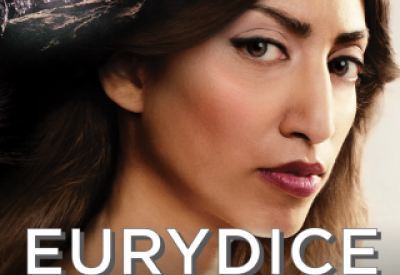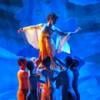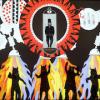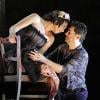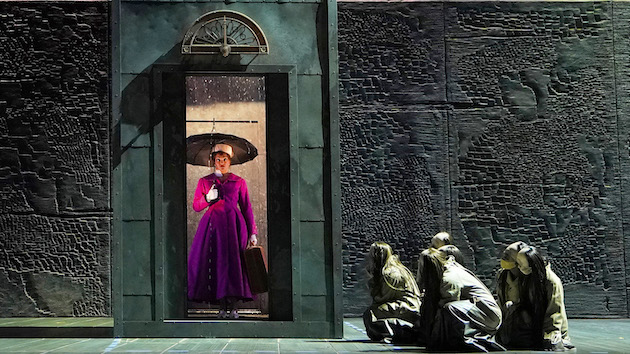
Why is Orpheus and Eurydice the myth that keeps on giving? In 1600 it provided the subject for Jacopo Peri’s opera Euridice. Right now, Hadestown is the hottest ticket on Broadway. And on Feb. 1, Los Angeles Opera premiered its long-awaited addition to the repertory, Eurydice, by playwright/librettist, Sarah Ruhl and composer/conductor Matthew Aucoin.
Ever since Aucoin was appointed as LA Opera’s first composer-in-residence (in 2016), there’s been some question about whether the then 26-year-old Harvard/Juilliard grad (later anointed a “genius” by the MacArthur Foundation) was as good as his press. To be frank, until Saturday, his local resume was something less than stellar.
His conducting debut in 2016 leading the performances of Philip Glass’s Akhnaten got off to a very rocky start, but later improved. The incidental music he composed to accompany a Halloween screening of Nosferatu (the same year) offered little more than an atmospheric pastiche. His conducting of Rigoletto two years later was by the book. A student work about Walt Whitman, Crossing, was presented in a very modest, semistaged concert version.
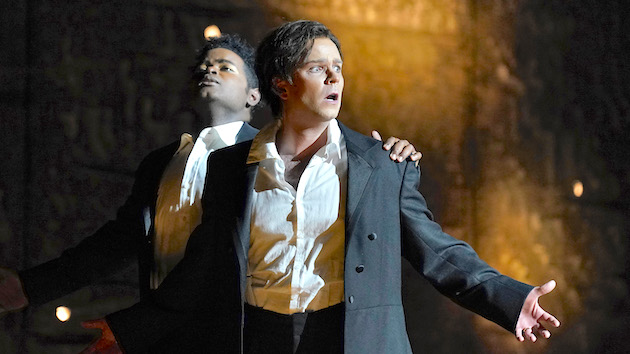
Aucoin had a lot riding on the outcome of Saturday’s premiere. Not just because it had the potential to solidify his local reputation, but because Eurydice (which features a trio of MacArthur “genius-grant” recipients: Aucoin, Ruhl, and director Mary Zimmerman) is already booked for the Metropolitan Opera (as a coproducer) with the New York opening scheduled for fall, 2021.
Fortunately, with a few reservations, Saturday’s performance was a triumph — musically, visually, and vocally. For every twist and turn that Ruhl’s libretto takes, Aucoin provides a chromatic rainbow of orchestral accompaniment and melodic vocal lines. And there was certainly was no one better suited and more committed to conducting it.
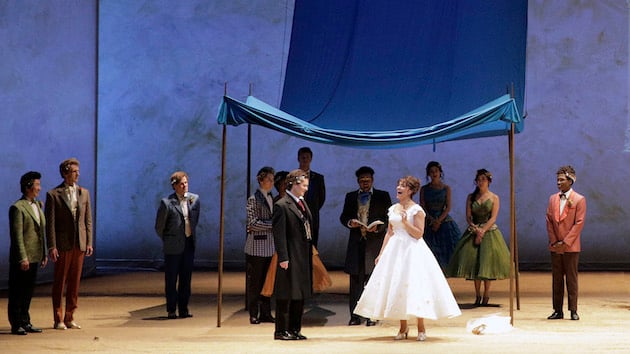
Aucoin’s new score proves that he is a master of musical synthesis. From its first to last note, Eurydice incorporates a Grove Dictionary’s worth of musical references — from Gregorian chant to the Devil in Gounod’s Faust to the overlaying vocal techniques of György Kurtág. There are nods (and winks) to Baroque opera. We descend to the underworld hand-in-hand with Wagner accompanied by an anvil-clanking chorus. There’s even a 2001: A Space Odyssey finale, complete with a descending black obelisk set to an interstellar chorus à la Ligeti.
But if there are two composers whose musical trademarks resound throughout Aucoin’s score, they are Phillip Glass and John Adams. Aucoin has absorbed and mastered their techniques of building momentum with repeated patterns and swirling instrumental figures (particularly in the flutes). But as all the best thieves do, he makes these techniques his own. The opera’s set pieces abound in dramatic conflict and emotional tenderness, with humorous interactions provided by hell’s “Rolling Stones” chorus: Stacy Tappan as Little Stone, Raehann Bryce-Davis as Big Stone, and Kevin Ray as Loud Stone.
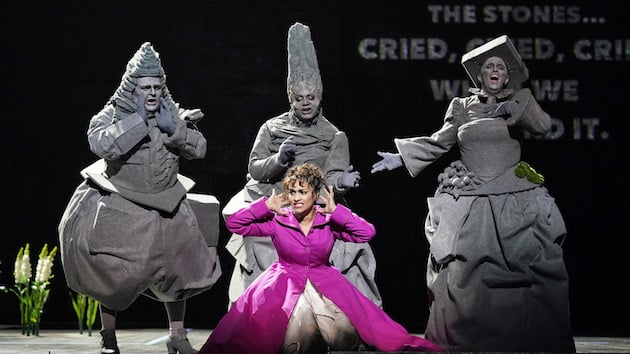
Like a butterfly that had taken three years to emerge from its chrysalis, the opera (based on Ruhl’s 2003 play) reconstructs the myth almost entirely from her own perspective. Ruhl framed her play around her personal experience of losing her father at a young age. She took the familiar myth in in an untraditional direction, using it as a way to hitch a ride to the realm of the dead so she could be reunited with her father. This reunion adds a Freudian pivot point to the play and the opera. As Eurydice is reunited with the father she’s lost, she is forced to come to terms with the real-life challenges of loving Orpheus, a man who is more obsessed with music than with his wife.
In one of the opera’s most touching scenes, after Eurydice is lured to the underworld (by Hades) and has been washed of her memories in the waters of Lethe, , she meets her father but doesn’t recognize him. He, however, recognizes her, and to calm her disoriented state of mind, proceeds to build her a room out of string. It’s a replay of the original parent-child relationship, one that Ruhl poetry, Aucoin’s music, and Zimmerman’s direction beautifully bring to life. As her memories slowly return, Eurydice embraces her father’s affection and and that creates a conflict between the loves in her life, which she expresses in the aria, “This is what it is to love an artist.”
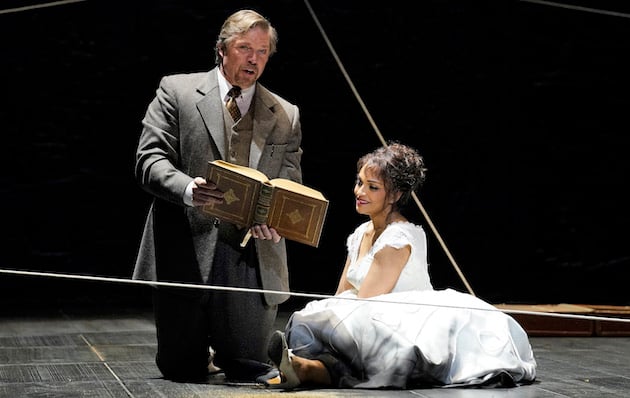
But it is at the ultimate “don’t-look-back” moment that Ruhl’s interpretation takes it most unexpected turn, as Eurydice deliberately provokes Orpheus’s death-inducing gaze, preferring to spend eternity in the arms of her father. The tragic twist is that he has purged himself of her memory in the water of Lethe, thinking she has rejoined the living. The tragedy is that you can’t go back – in this case, the father is gone, even the string house is gone. The production features a sterling cast led by the lithe and endearing soprano Danielle de Niese (Eurydice); the robust baritone Joshua Hopkins (Orpheus); countertenor, John Holiday (as Orpheus’s spirit double); tenor Barry Banks (Hades); with LA Opera veteran baritone Rod Gilfry as Eurydice’s father, a sort of rumpled, midwestern version of Polonius.
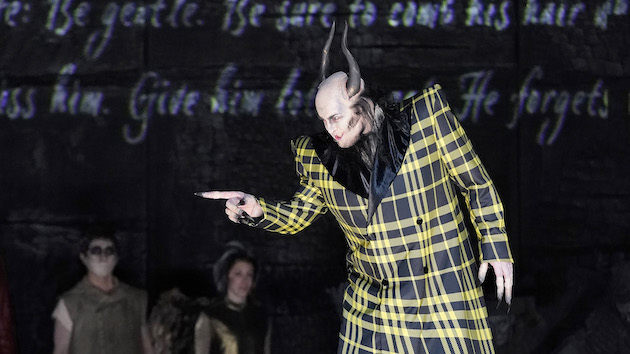
The realms of the living and the dead are skillfully delineated by the abstract sets and contemporary whimsical costumes by Daniel Ostling and Ana Kuzmanić, particularly the trio of stones that look as if they escaped from Alice’s Wonderland.
With Eurydice, Aucoin, Ruhl, and Zimmerman, the designers, and the entire cast create a wondrous adventure. It will be fascinating to see how it evolves by the time it reaches the Met.


